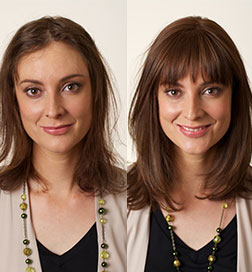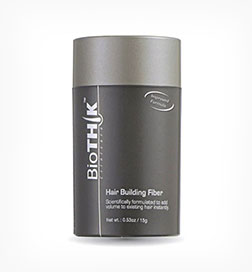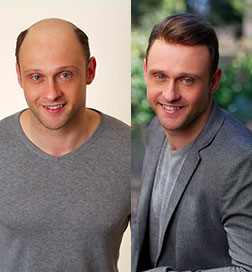Jada Pinkett-Smith has been open about her struggles with the hair loss condition alopecia for several years. She shares updates regularly via her social media, bringing much needed attention and to this condition that affects over 500,000 people in Australia, and bringing some normalisation to an otherwise distressing illness. So what is alopecia and what causes it, and does it have a cure?
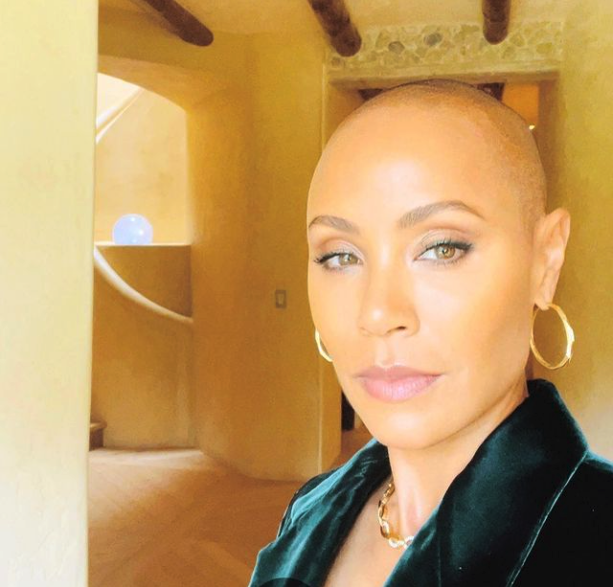
Photo: Jada Pinkett-Smith instagram
What Is Alopecia?
Alopecia is a condition that affects the scalp (and in some cases, the entire body), resulting in temporary or permanent hair loss. Symptoms can develop suddenly or gradually. In men, hair usually recedes from the hairline, while womens’ hair typically starts to thin from the centre of the scalp. In some cases, individuals will develop circular or patchy bald spots over the head and parts of the face (such as the beard and eyebrows), or a sudden loosening of hair, which may fall out in clumps when brushing or washing the hair. Full-body hair loss is uncommon, but can occur with a variety of medical and psychological conditions, or as a result of certain drugs.
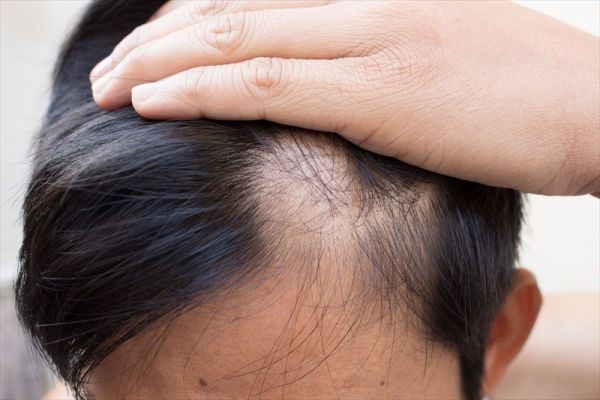
Alopecia areata is equally common in men and women, and can affect individuals of all ethnic groups. Approximately 1 person in 50 will suffer from alopecia at some point during their lifetime. Most people develop this condition before age 30, however it can affect people later in life. Jada Pinkett-Smith, for example, was diagnosed with alopecia areata in her late-40s.
Alopecia causes include a variety of hereditary and lifestyle factors. While it is not curable, there are many forms of alopecia treatment that can aid in hair growth. Many people also find it helpful to seek support from local and national foundations, discussion groups, social media, blogs, and charities.
To learn more about alopecia, refer to our blogs on living with alopecia, the truth about alopecia, and dating with alopecia.
What Causes Alopecia?
If you’re wondering, ‘Is alopecia genetic?’, the answer is: it can be. Alopecia is strongly influenced by heredity. Balding patterns that occur with age can often be predicted by family history. Other alopecia causes may include scalp infections, thyroid disease, Down’s syndrome, vitamin D deficiency, along with a range of psychological disorders.
It’s important to note that alopecia is considered a natural part of the aging process, whereas alopecia areata results in patchy or diffuse hair loss, and is triggered by an autoimmune response. If you are affected with the latter sub-type, your prognosis will be less predictable, and you may experience lifelong bouts of hair loss and regrowth. Jada Pinkett-Smith’s hair loss is a result of alopecia areata. This condition is also associated with changes in the fingernails and toenails, which can include splitting, pitting, and the appearance of white spots and lines.
Can Your Hair Grow Back From Alopecia?
Many individuals with alopecia areata experience bouts of hair regrowth. There are several treatment options that can help your hair to grow back faster. These include anti-inflammatory drugs such as corticosteroids, topical immunotherapy, and Minoxidil (a topical serum that aids in hair growth).
- Corticosteroids – These anti-inflammatory drugs can be applied topically, taken orally, or injected locally. For isolated patches of hair loss, injections can be administered and repeated at regular intervals until hair regrowth is achieved. For individuals who are averse to injections, topical corticosteroids can be applied on a daily basis. For sudden or widespread hair loss, oral corticosteroids may slow hair loss and encourage regrowth.
- Immunotherapy – Topical immunotherapy treats alopecia by initiating the body’s immune response. In response to a chemical applied to the skin, the scalp develops an allergic reaction. This diverts the focus of the immune system away from the hair follicles, thus stimulating hair growth.
- Minoxidil – Minoxidil is a medicated serum sold under the brand name ‘Rogaine’. Applied topically to the scalp, it is suitable for cases of mild alopecia areata. By dilating the blood vessels, it allows more oxygen, blood, and nutrients to penetrate the hair follicles, resulting in increased hair growth and the production of thicker hair strands.
_600_338_80.jpeg)
Living with Alopecia Areata
Hair loss can be devastating, especially when it occurs suddenly. You may experience feelings of anxiety, loss, fear, shame, frustration, and anger. Fortunately, there are several coping strategies you can implement to help you adjust to living with alopecia.
- Combat your feelings of isolation by joining a support group, or meet others through local awareness events.
- Learn how to cope with your anxiety by seeking professional help from a psychologist.
- Gain a greater sense of control by exploring the various cosmetic solutions for alopecia areata.
Transitions Hair aims to equip you with the knowledge and support you need to overcome alopecia areata. Our hair loss solutions are designed for every level of hair loss in men and women. We offer hair regrowth and hair retention treatments, non-surgical hair replacement, hair transplants, and a wide range of stylish wigs.
